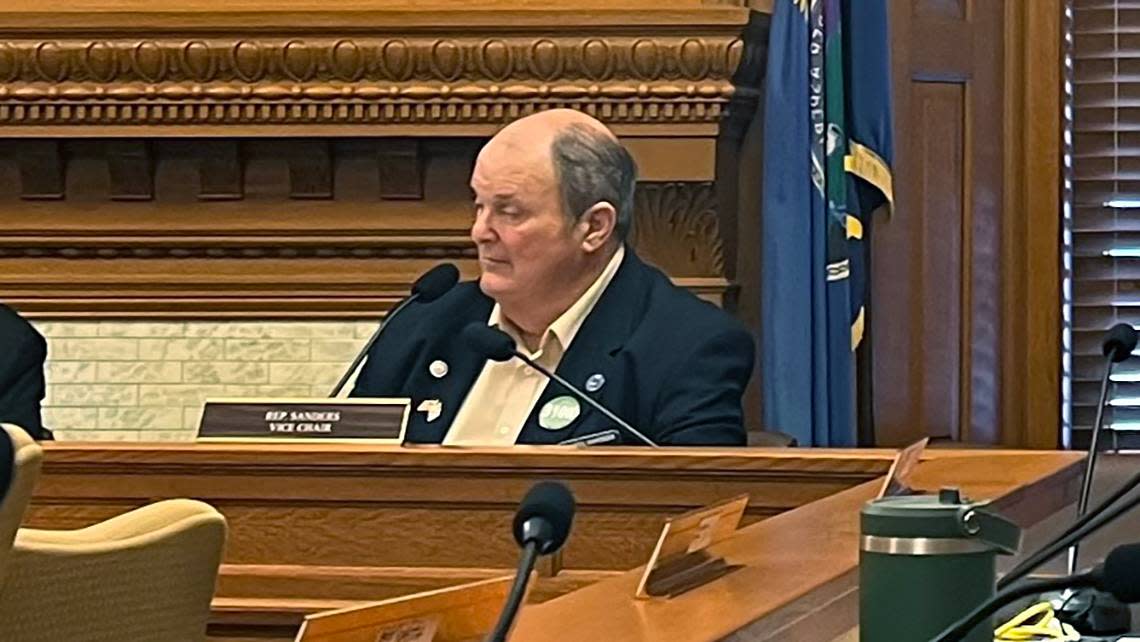Kansas Republicans push to ban diversity, but they can’t — or won’t — define it | Opinion

- Oops!Something went wrong.Please try again later.
Vague laws are bad laws.
This isn’t just my opinion. “Vagueness doctrine” is taught frequently in law schools and cited in Supreme Court opinions. The idea is that it’s unfair to punish people for breaking rules so hazily written that nobody can really know what conduct does or doesn’t cross the line.
That’s because ambiguity is not merely confusing, but actively harmful. Vague laws — because they can be arbitrarily enforced — are ripe for abuse, used by tyrants to punish their enemies while leaving their friends untouched.
Good laws, democratic laws, fair laws are written so that everybody knows precisely what’s allowed and what’s not.
Which brings us to the Kansas Legislature, naturally.
The Kansas House last week passed a bill barring the state’s public colleges and universities from requiring diversity, equity and inclusion statements from candidates when they hire new employees. That’s no surprise: Republicans nationwide have been on a tear against signs of multiculturalism in public life — the University of Florida, for example, earlier this month eliminated all of its DEI positions because of a ban passed by that state’s GOP-controlled Legislature.
The problem with the Kansas bill — one of the problems, anyway — is that it’s vague. How vague? It doesn’t actually define what “diversity, equity and inclusion” means.
Don’t take my word for it. The bill’s supporters are pretty open about the fuzziness of their effort.
“I may not be able to give you an explanation or a definition,” said state Rep. Clarke Sanders, a Salina Republican, “but I’d know it when I saw it.”
Folks, that’s not how good laws are made.
All of this matters for officials at the colleges and universities affected by the bill. Institutions found to have violated the anti-DEI law would be on the hook for a $10,000 civil penalty for every violation. So it’s important that they understand precisely what conduct would now be off-limits to them. Kansas Republicans are offering glib hand-waving answers instead.
Which makes you wonder if the vagueness is the point.
The GOP’s anti-DEI crusade is part of a broader backlash against “wokeness” — an expression of right-wing contempt for the idea that white Americans should ever learn about or consider the history and perspectives of racial and sexual minorities, or be committed to their well-being.
So when conservatives say “DEI” or “wokeness” or “CRT” or “political correctness,” what they often mean is “Black stuff.” Or, sometimes, “gay stuff.”
We know it — prejudice — when we see it.
There might be good reasons for universities to clamp down on ideological pledges of any kind: State Rep. Steven Howe, another Salina Republican behind the bill, has spoken of preserving “intellectual diversity” on campus. And that sounds plausibly good at a surface level.
But it’s hard to dismiss the sense that anti-DEI bills aimed at higher education in Kansas are meant to signal, as The Wichita Eagle’s Dion Lefler put it last year, that “if you’re a promising minority student, you’ll probably be more valued and happier in some other state’s college system.”
If Kansas Republicans are intent on passing such a bill, though, the least they could do is draw some bright lines instead of forcing university officials to guess at their intentions.
“It’s hard for me to pass a bill punishing universities for doing something we don’t define,” said state Rep. Tom Sawyer, a Wichita Democrat.
The omission is baffling. More than 20 GOP-led states have passed anti-DEI legislation in recent years. Did none of them come up with a definition of “diversity, equity and inclusion” that Sunflower State legislators could copy and paste? Maybe the Republicans in the Kansas Senate — which has the next crack at the bill — can fix that.
Vague laws are bad laws, after all. Which makes the anti-DEI legislation a bad bill.
Joel Mathis is a regular Kansas City Star and Wichita Eagle Opinion correspondent. He lives in Lawrence with his wife and son. Formerly a writer and editor at Kansas newspapers, he served nine years as a syndicated columnist.

